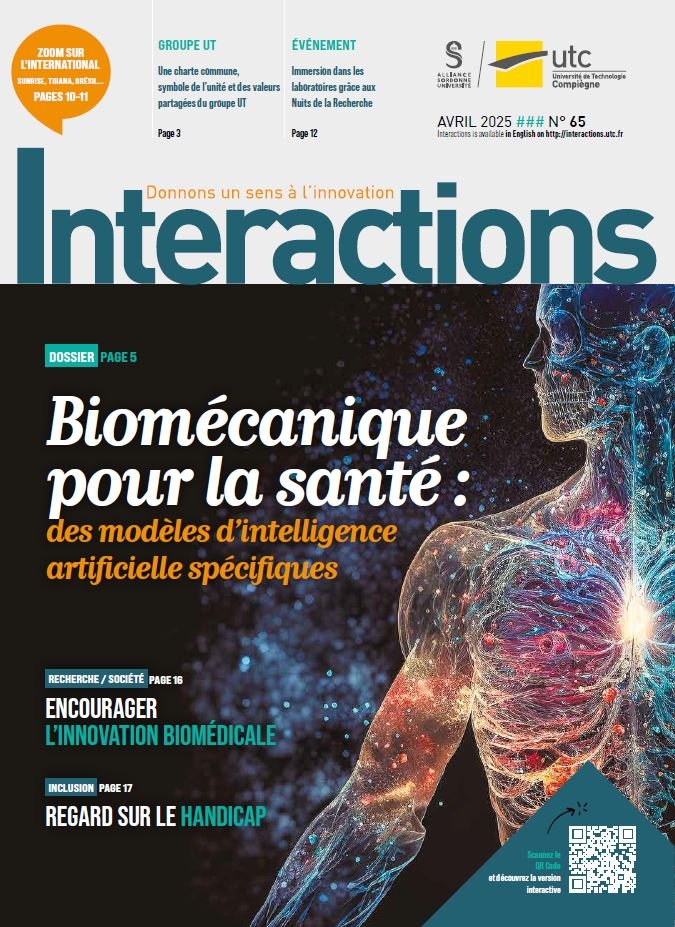There are some really excellent ideas in the participatory budget !

In the beginning, the Bissap project, a drink made from hibiscus flowers, was an initiative for the benefit of the student community and one of its associations, the “Pic’asso”. A great idea launched thanks to the participatory budget, an envelope financed by funds from the contribution for student and campus life (CVEC) and voted by the students elected to the Council for Studies and University Life. This fund makes it possible to realize student projects aimed at improving the daily life of UTC students on their campus. On the strength of this, with the support of the entrepreneurship division of the department of socio-economic partnerships and entrepreneurship (DPSEE) at UTC, Bissap, renamed “Sir Roselle ”, won a prize last February in the Pépite Sorbonne Université’s call for projects, which enables students to test, boost and finance a entrepreneurial project. An adventure, with a success story as a backdrop, which must now move on to the manufacturing and marketing stage.
Ruddy Moussahou, a UTC undergraduate student (second year mechanical engineering) IM02, can savour the success of his madeleine de Proust: bissap, a juice made from hibiscus flowers that evokes his youth and his Congolese origins. “I often drank it in Africa and I wanted to introduce others to my mother’s recipe,” the student emphasizes. Because the Bissap project, now called Sir Roselle, an ambition initially supported by the Student Life Office (BVE), acclaimed by students during the 2022–2023 participatory budget and now supported by the entrepreneurship division of the Directorate of Socio-Economic Partnerships and Entrepreneurship (DPSEE), is taking advantage of the motivation of an entire team to outsource the marketing of this drink beyond the walls of UTC. Especially since “the idea of starting a business has been on my mind since I arrived in France in 2020,” says the young student-entrepreneur and logistics and production manager of the project. With Samuel Monji and Inès Abbache, both computer engineering students and respectively finance and partnership manager and communication and marketing manager, he devotes his energy to “offering a drink with multiple therapeutic benefits: antioxidant, reduction of high blood pressure, regulation of blood sugar, etc.”.
Prototyping stage
The winners in February of the call for projects from Pépite Sorbonne University and the Île-de-France region received €3 000 in funding to test, boost and finance their project via the UTC entrepreneurship centre. “To finalize a prototype of the still artisanal product by April,” says Samuel Monji. We have to work on the bottle, the logo, the label and formalize the recipe in order to reinforce its identity. The purchase of equipment, the placing of orders and the search for additional funding are underway, particularly with a view to industrialization. Discussions with the Carrefour chain in Venette could make it possible to distribute the product and make it known.
”UTC, a solid foundation”
For Ruddy Moussahou, the participatory budget was “an opportunity to test the ability to lead a project, a learning experience for its management and the management of a team”. Present from the start, UTC is for the trio, “an essential support that provides access to the expertise of lecturers and the many technical, biology and design centres… We were supported by the BVE (educational and vocational guidance service) but also by Mirian Kubo, head of the Food Innovation and Agri-Resources department, and then by the Department of socio-economic partnerships and entrepreneurship (DPSEE). It is also thanks to UTC that we came into contact with Pépite Sorbonne Université. For the future, UTC is a solid base.”
Véloc, another success story
For its part, the Véloc association facilitates student mobility by renting them at a low cost “130 bicycles acquired, collected and refurbished and with the necessary safety equipment such as helmets and locks. A cargo bike has also been purchased,” says François Pons, former president of the association in his third year of mechanical engineering, who has now handed over the reins in order to ‘infuse new energy and enable everyone to get involved in this project, which is part of the 2021–2022 participatory budget’. Véloc also provides free self-repair for two-wheelers during the office hours provided by around twenty volunteers at its premises, equipped with the necessary tools, parts and equipment, as well as two self-service terminals accessible to all. “The first, installed near the Benjamin Franklin building, quickly proved to be very popular,” says François Pons, who developed the idea of the second terminal installed at the Pierre Guillaumat centre” to benefit a wider audience because more and more people are using bicycles for everyday travel. We also have a demand from lecturers. It’s really quick and convenient for the journey between our two campuses. This infrastructure, which promotes sustainable transportation, will be part of UTC’s Soft Mobility programme, supported by the Haut-de-France region and the Greater Compiègne authorities (ARC). Good news for enthusiasts who are waiting to get in the saddle: the association’s project to acquire new equipment has once again been approved this year in the 2024- 2025 participatory budget in order to meet growing demand. That is what we call success !
Boosting initiatives
Supported since 2021 by students elected to the Council for Studies and University Life (CEVU) from the contribution for student life and campus (CVEC), the participatory budget makes it possible to develop participatory democracy by putting ideas into practice. A budget of 15 000 euros is dedicated to this. Reception, social and health support, culture, sport, prevention and health education are all areas in which students invest, either alone or in groups. After submission, eligibility and feasibility study of the projects, the students’ vote is decisive. This year, five projects are supported until completion. Other actions selected include the development of a tavern to improve the welcome and comfort of the Pic’asso, the installation of a safe zone for help and assistance to witnesses and victims, a reduction in the price of first aid training to make it accessible to as many people as possible, and the provision of new furniture at the foyer — Maison des étudiants. “They meet the needs of as many people as possible,” says Laëtitia Bouet, project manager for student life. ”The initiators then contact the service providers, in charge of managing and monitoring the projects. It’s part of their training. This one didn’t actually work out, but we reassessed the project to install green plants to brighten up the corridors.”
IL




